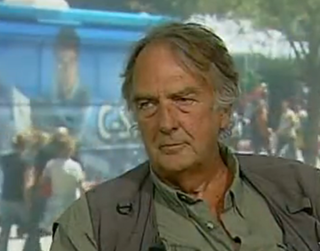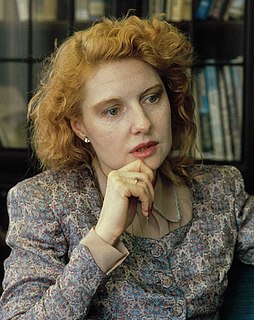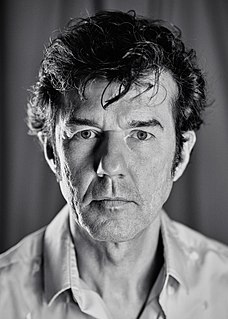A Quote by Svante Paabo
I want to know what changed in fully modern humans, compared with Neanderthals, that made a difference. What made it possible for us to build up these enormous societies, and spread around the globe, and develop the technology that I think no one can doubt is unique to humans.
Related Quotes
What's changed is we now have good anatomical, geological, archaeological evidence that Neanderthals are not our ancestors. When I wrote 'Lucy,' I considered Neanderthals ancestors of modern humans. We have gone back twice the age of Lucy, six million years. And we see that upright bipedal walking goes back that far in time.
By the time of the Singularity, there won't be a distinction between humans and technology. This is not because humans will have become what we think of as machines today, but rather machines will have progressed to be like humans and beyond. Technology will be the metaphorical opposable thumb that enables our next step in evolution.
A few years ago, they [Neandertals] were thought to be ancestral to anatomically modern humans, but now we know that modern humans appeared at least 100,000 years ago, much before the disappearance of the Neandertals. Moreover, in caves in the Middle East, fossils of modern humans have been found dated 120,000-100,000 years ago, as well as Neandertals dated at 60,000 and 70,000 years ago, followed again by modern humans dated at 40,000 years ago. It is unclear whether the two forms repeatedly replaced one another by migration from other regions, or whether they coexisted in some areas
When humans act like animals, they become the most dangerous of animals to themselves and other humans, and this is because of another critical difference between humans and animals: Whereas animals are usually restrained by the limits of physical appetites, humans have mental appetites that can be far more gross and capacious than physical ones. Only humans squander and hoard, murder and pillage because of notions.
The Magna Carta is an early reminder of the crucial difference between freedom and liberty. Liberty is freedom that is unique to humans, it is guaranteed by law. All animals are free, but in a system of humans total freedom is anarchy. Humans have thrived by letting a dominant authority regulate freedom. Liberty is a freedom that the authority has granted or has been persuaded to grant. For centuries, the state and the people have negotiated, peacefully and violently.
One of the ways the telegraph changed us as humans was it gave us a new sense of what time it is. It gave us an understanding of simultaneity. It gave us the ability to synchronize clocks from one place to another. It made it possible for the world to have standard time and time zones and then Daylight Savings Time and then after that jetlag. All of that is due to the telegraph because, before that, the time was whatever it was wherever you were.




































